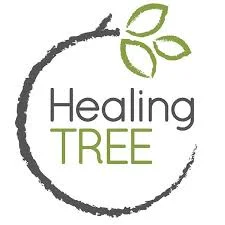Arkansas Local Accident Resources
Arkansas Local Accident Resources
Fatal Car Accidents in Arkansas Today
If you have lost a loved one today in a fatal car accident, we know you must be reeling from shock and grief. There is nothing anyone can do to take your pain away. However, other challenges will soon crop up, especially if the person you lost was an income earner in your home. You may be faced with difficult decisions about which bills to pay as you struggle to make ends meet.
There is a way forward, though. When someone is killed due to the negligence of another, certain members of their surviving family may be eligible to recover compensation by filing a wrongful death lawsuit. However, we know that after losing a loved one, taking legal action may be the last thing you’re considering.
However, by working with an experienced wrongful death lawyer, you ensure that all financial and legal matters arising from the accident are handled with your family’s best interests in mind. While no verdict or settlement will turn the clock back to a time before the accident, knowing you are working with a compassionate professional dedicated to helping you move forward can make a big difference for you and your family.
Whether or not you are entitled to pursue wrongful death damages, our team at Local Accident Reports is here to help. For years, we have been helping accident victims and their families move forward after a fatal car accident. Call us today to schedule your free consultation.
What to Do if Your Family Has Lost Income After a Wrongful Death
After a severe accident, your family may be put in a tight financial situation due to the passing of a loved one. If you find yourself in this situation, you may be able to get some financial assistance, depending on the unique circumstances of your situation. Some reliable sources you can reach out to after an Arkansas car accident include:
Workers’ Compensation Death Benefits
If the person died as a result of a work-related accident, the family may be eligible to receive death benefits through the Arkansas Workers’ Compensation system. These benefits may provide weekly payments to dependents, covering funeral expenses and part of the lost income.
Resource: Arkansas Workers’ Compensation Commission
Website: awc.arkansas.gov
Phone: (501) 682-3930
Social Security Survivor Benefits If the deceased contributed to Social Security, their surviving spouse, children, or other dependents may qualify for survivor benefits. These benefits can provide monthly payments to help with living expenses after the primary income earner’s death.
Resource: Social Security Administration
Website: ssa.gov
Phone: 1-800-772-1213
Arkansas Department of Human Services (DHS) The DHS provides various financial assistance programs that may help families in crisis, including Temporary Assistance for Needy Families (TANF) and the Supplemental Nutrition Assistance Program (SNAP) to provide immediate relief for food and basic living expenses.
Resource: Arkansas Department of Human Services
Website: humanservices.arkansas.gov
Phone: 1-800-482-8988
Do You Need Help Getting an Official Copy of Your Arkansas Car Accident Report?
It’s important to make sure you obtain a copy of the accident report as soo as you can after the accident. This is the report typically drawn up by the responding police officers at the scene. Attorneys and insurance companies will need a copy of the accident report to process your claim successfully. For those involved in car accidents in Arkansas, the Arkansas State Police maintains the main repository of all car accident reports within the state.
You can obtain a copy of your report through the Crash Report Online Purchase System. A service fee is added to the statutory fee of $10.00 per copy requested via the online portal. Customers who use the online portal will be sent electronic copies of their reports once they become available, usually ten working days after the day of the accident. If you are looking for a crash report for an accident that involved a juvenile occupant, contact the Arkansas State Police Crash Records Section at (501) 618-8130.
We can also help you get a free copy of your police report.
Emotional Support
After a wrongful death, it is not uncommon for family and friends of the victims to experience a wide range of emotions caused by the trauma. If you find yourself feeling anxious, depressed, or dealing with another form of mental anguish caused by the accident, it is important to seek professional help before your condition worsens. For residents of Arkansas, some available resources for emotional support include:
- Substance Abuse and Mental Health Services Administration: The SAMHSA helpline puts those in need of mental health counseling on the road to recovery. When you text or call, a trained crisis counselor will listen to what you are dealing with with patience and without judging. Our Disaster Distress Helpline is manned by trained counselors across a wide network of crisis call centers throughout the United States. Our counselors offer:
- Crisis counseling: To aid people in emotional turmoil related to any type of disaster, from hurricanes and tropical storms to acts of violence and motor vehicle accidents
- Identifying mental trauma: Including signs and symptoms to be aware of in yourself and others, as well as the impacts it can have on victims and their families
- Referrals: If further follow-up support and care are needed, they can refer you to a crisis call center that is local to your area
- Coping tips: Tips on healthy ways to cope with your traumatic experience
- Arkansas Department of Human Services: Additional counseling services for victims of car accidents and other traumatic events can also be sought through the state’s Department of Human Services crisis line or in person.
Did a Driver Cause Your Accident Under the Influence?
Both Arkansas DWI and DUI offenses are dangerous and considered serious traffic violations. Drivers under the influence can experience serious penalties as a result of their reckless behavior, including demerits on their driving license, exorbitant fines, incarceration, and the suspension or revocation of their license. The legal limits in Arkansas are 0.08% for drivers 21 and older, 0.04% for drivers of commercial vehicles, and 0.02% for those under the age of 21. If you were injured by a driver who was under the influence, you may be able to seek various forms of assistance through:
- Mothers Against Drunk Driving: Mothers Against Drunk Driving in Arkansas is a unique nonprofit group that helps fight drugged and drunk driving. It also provides much-needed support to the victims of drunk driving accidents.
Arkansas Personal Injury and Wrongful Death FAQs
How do I know if my case is valid?
If you suffered injuries due to someone else’s negligence or carelessness, you may be able to seek compensation from the at-fault party or their insurance company.
To have a valid personal injury case, you will also need to prove that the defendant’s negligence directly caused your injuries and that due to your injuries, you incurred some form of damages, such as medical bills, lost earnings, damage to property, etc.
How is negligence proven?
Proving negligence is the cornerstone of any successful personal injury or wrongful death case. Although this might sound easy, it isn’t. Multiple factors may have played a role in your injury or your loved one’s death, possibly including your own actions. This is just one of the many reasons why working with an attorney with a lot of experience is vital.
To prove negligence, your attorney must show that the defendant owed a duty of care. Simply put, this means they had a responsibility to keep others safe. For instance, all drivers have a duty of care to everyone else on or near the roadway. This duty of care includes obeying all traffic laws and not getting behind the wheel when intoxicated.
Once a duty of care is established, your lawyer will thoroughly investigate your accident to show that the defendant violated their duty. In other words, they acted carelessly, recklessly, or with deliberate disregard for your safety. Drunk driving is an example of a violation of one’s duty of care. From there, proving that the accident caused your damages is a matter of proof.
Establishing negligence is challenging and demands an intensive investigation. This investigation often includes working with accident reconstruction experts, interviewing witnesses, examining cell phone records, and reviewing medical records to build a compelling case that unequivocally establishes the above-listed elements. When more than one party is to blame for an accident, this process becomes even more difficult.
How long do I have to file a personal injury or wrongful death claim?
All personal injury lawsuits are beholden to a deadline called the statute of limitations. The statute of limitations for most Arkansas personal injury cases is three years from the day the injury occurred, or three years from the day it should have been discovered.
Although there are a couple of exceptions to the statute as it pertains to car accidents, it is in your best interest to discuss your situation with an experienced lawyer as soon as possible after your accident.
What are the exceptions to the statute of limitations?
While the three-year deadline is inflexible mainly, there are a few exceptions that can toll the statute, thereby extending the deadline:
- Minors: If a car accident victim is under 18, they have until they turn 21 to bring a lawsuit.
Mental incapacity: If a car accident victim is mentally incapacitated in the crash, the statute can be tolled until they regain capacity.
Should I accept the insurer’s first settlement offer?
What damages am I entitled to after an Arkansas car accident?
The two damages recoverable in a personal injury claim are compensatory and punitive. Compensatory damages are intended to indemnify the victim for the losses caused by the accident. These damages, further stratified into economic and non-economic damages, are designed to make the victim whole. In other words, to restore them to the state they would be in had the accident not occurred.
Punitive damages are meant to penalize the at-fault party for particularly egregious acts of negligence and dissuade them and others from acting similarly. Although rare, punitive damages can be awarded in personal injury cases.
Compensatory damages that are frequently associated with personal injury cases include:
- Current and projected medical expenses
- Lost earnings
- Pain and suffering
- Mental anguish
- Property loss
How does Arkansas define wrongful death?
Who is eligible to file a wrongful death lawsuit in Arkansas?
In most personal injury claims, the victim files their own claim against the at-fault party. In a wrongful death case, however, the aggrieved party is the decedent and, therefore, unable to file on their own behalf. The state’s wrongful death laws essentially allow specific surviving family members to file in place of the victim.
An Arkansas wrongful death case may only be brought by the executor of the deceased’s estate. If no executor has been named, then the claim or lawsuit may be filed by an eligible heir. This can include the decedent’s:
- Spouse
- Parents
- Child
- Sibling
- Legal guardian
Are additional damages available for a wrongful death?
The damages awarded in a wrongful death suit are intended to provide the victim’s surviving family members with financial support by covering expenses associated with death.
Wrongful death claims in Arkansas can be divided into two distinct categories: the estate claim and the family claim.
Estate Claims
The deceased’s estate brings an estate claim. It seeks financial compensation for the damages endured by the decedent due to the accident.
Estate claims can include money for damages such as:
- Funerary costs
- Medical expenses stemming from the victim’s accident-related injuries
- Pain and suffering experienced by the victim
- The lost economic value of the victim’s remaining life
Family Claims
The above-listed surviving family members of the deceased can bring a family claim. This claim can seek financial compensation for the damages they sustained due to the unexpected loss of their loved one, including:
- Loss of consortium
- Loss of financial support
- Emotional trauma
- Loss of household services
- Mental anguish
- Loss of guidance, comfort, and care
How are Arkansas wrongful death settlements dispersed?
Many states split wrongful death settlement awards equally between the estate’s heirs. In Arkansas, however, surviving family members are only eligible to be reimbursed for damages they face.
So, no matter how many family members are entitled to pursue financial compensation for damages arising from the wrongful death, all monetary distributions are handled in a single claim.
Certain family members will receive more or less compensation than other family members, based on factors like:
- Emotional closeness
- Physical distance
- Financial independence
For example, say a parent dies, leaving behind two surviving children. One of them was financially reliant on the parent at the time of their death, while the other was working to support themselves. In this scenario, the court is most likely to award the child who is financially dependent with a larger settlement amount than the child who is financially independent.
The calculation and division of wrongful death claims are complex. An experienced wrongful death lawyer from Local Accident Reports will be able to help you through each phase of the legal process.
Is the money from a wrongful death case taxed?
In Arkansas, as in most states, the funds received from a wrongful death settlement or judgment are generally not subject to federal or state income tax. The IRS typically considers compensatory damages—such as those awarded for emotional distress, loss of companionship, funeral expenses, and loss of financial support—non-taxable. These damages are intended to help the surviving family recover from the economic and emotional impact of losing their loved one, and therefore, they are not treated as taxable income.
However, there are some exceptions. If the wrongful death case includes punitive damages awarded to punish the at-fault party rather than to compensate the family, those punitive amounts may be subject to federal and state taxes. Additionally, if any portion of the settlement or judgment is designated for interest accrued during the case, that interest may also be taxable.
Since each case can vary, families in Arkansas should consult with a tax professional or attorney familiar with wrongful death claims to understand the tax implications of their specific settlement fully. This ensures that all necessary steps are taken to comply with tax laws while maximizing the financial benefit for the grieving family.
How much will a lawyer cost me?
In Arkansas, wrongful death and personal injury lawyers commonly work on a contingency fee basis, which means clients are not required to pay any upfront fees for legal representation. Instead, the lawyer’s fee is contingent upon the case’s successful resolution, whether through a settlement or a court award. The attorney receives a percentage of the total amount if compensation is recovered. This arrangement is particularly beneficial for families dealing with wrongful death or individuals suffering from personal injuries, as it allows them to pursue justice without the financial strain of paying hourly legal fees.
With a contingency fee structure, attorneys are highly motivated to achieve the best possible outcome for their clients, as their payment depends on winning the case. This gives clients confidence that their lawyer is fully committed to their case. Additionally, if the lawyer does not win, clients typically owe nothing for legal fees, making it a low-risk option for those seeking to file wrongful death or personal injury claims in Arkansas.
Arkansas Car Accident Statistics
No one ever plans on being involved in a car accident, but they can and do happen. Some of the most recent Arkansas car accident statistics include:
- In 2020, 638 fatal car accidents occurred statewide, up from 511 in 2019, marking a 24.9% increase. In that same year, 2,721 car accident victims were seriously or catastrophically injured.
- 27% of all fatal Arkansas car accidents list speeding as the main contributing factor
- 26% of all fatal collisions involved a driver who was under the influence
- In 2020, Arkansas State Police issued more than 2,000 speeding tickets to drivers going in excess of 100 miles per hour. In 2019, that number was just over 1,000
- The state’s fatality rate in 2020 was 1.88 per 100 million vehicle miles traveled
Arkansas Grief & Trauma Resources
Resources by State
- Alabama
- Alaska
- Arizona
- Arkansas
- California
- Colorado
- Connecticut
- Delaware
- Florida
- Georgia
- Hawaii
- Idaho
- Illinois
- Indiana
- Iowa
- Kansas
- Kentucky
- Louisiana
- Maine
- Maryland
- Massachusetts
- Michigan
- Minnesota
- Mississippi
- Missouri
- Montana
- Nebraska
- Nevada
- New Hampshire
- New Jersey
- New Mexico
- New York
- North Carolina
- North Dakota
- Ohio
- Oklahoma
- Oregon
- Pennsylvania
- Rhode Island
- South Carolina
- South Dakota
- Tennessee
- Texas
- Utah
- Vermont
- Virginia
- Washington
- West Virginia
- Wisconsin
- Wyoming
Contact an Experienced Professional at Local Accident Reports Today
If you are trying to cope with the loss of a loved one because of someone else’s negligence, you might be unsure of what your options are moving forward. The experienced and compassionate team at Local Accident Reports can evaluate the facts of your loved one’s passing and explain your rights and options in a free consultation.
We understand that nothing can undo what has happened, but if you are entitled to collect financial compensation so your family does not endure financial difficulties, there is no reason why you should not pursue it. If you want to speak with one of our representatives about the best way to proceed with your case, please call us at (888) 657-1460.
Motor Vehicle Crash Deaths by Road User Type and State

Car Occupants
171

Pickup and SUV Occupants
173

Large Truck Occupants
26

Motorcyclists
65

Pedestrians
42







